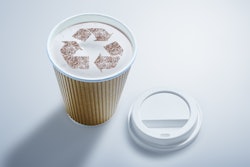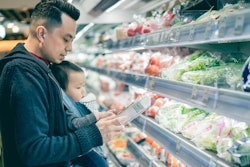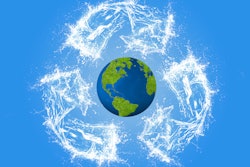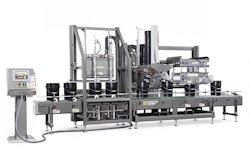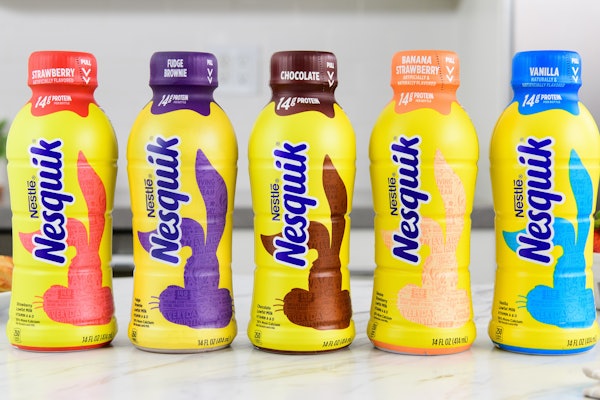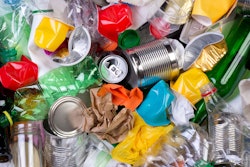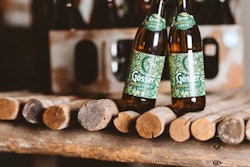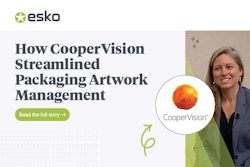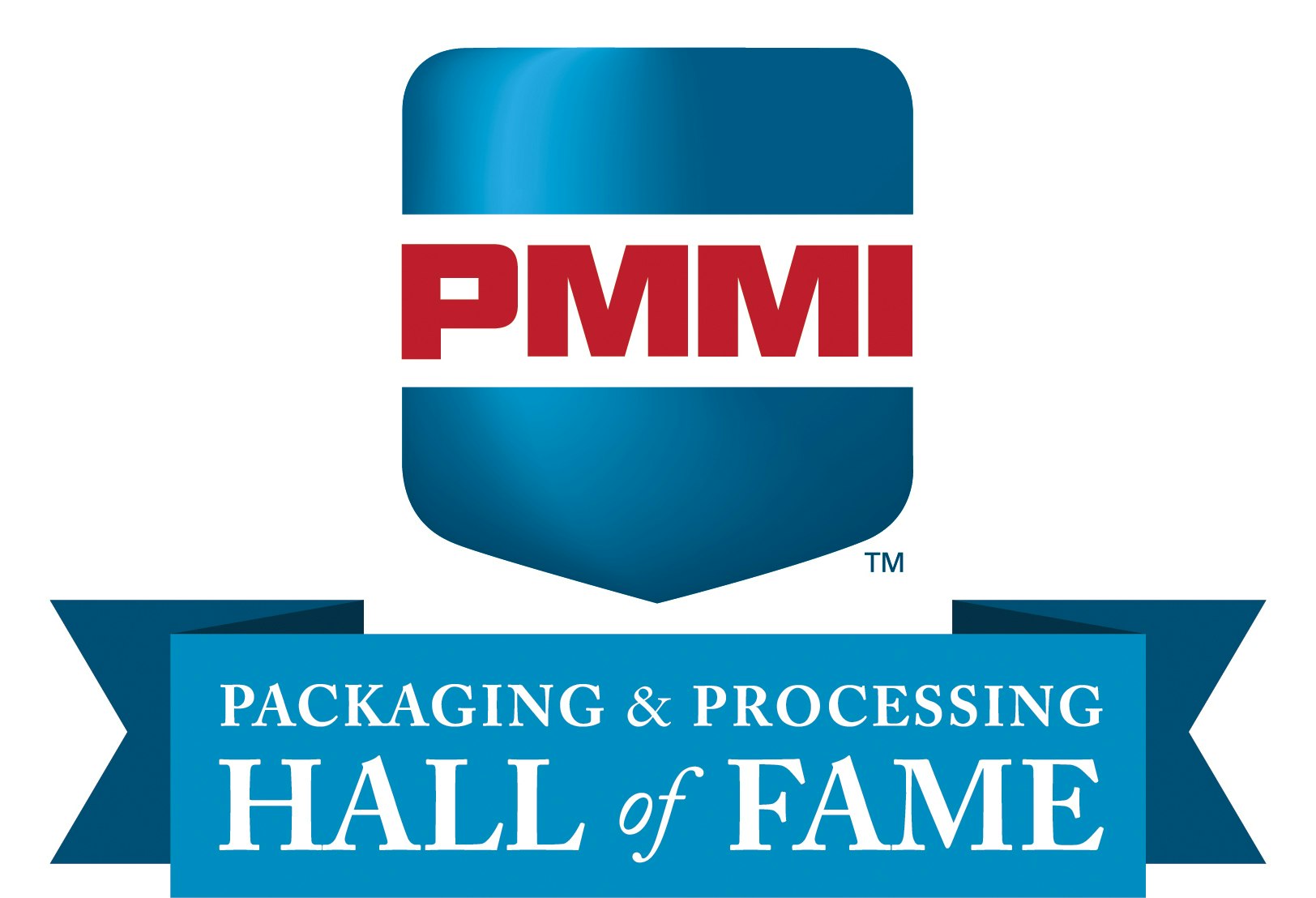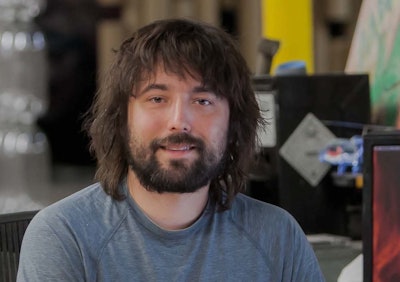
Following The Economist’s recent Sustainability Summit 2018, Tom Szaky, Founder and CEO of TerraCycle and a speaker at the event, spoke to Greener Package about the company’s evolution from upcycling, to creating an ocean plastics supply chain, and now to its upcoming launch of Loop, a disruptive ecosystem for CPGs that will eliminate waste altogether.
Greener Package:
In late 2017, your company was honored with the United Nations Momentum for Change Lighthouse Activity award for turning plastic collected from oceans into Head & Shoulders shampoo bottles. What did it mean to TerraCycle to be part of that project?
Tom Szaky:
TerraCycle’s business is all about figuring out how to eliminate the concept of waste. The way we started was by collecting and recycling those things that are not recyclable. And that’s what many people know us for. It’s been phenomenal; it has worked very well, and it continues to grow.
Four or five years ago, we embarked on our second major business unit, which is based around not just collecting and recycling, but also using the waste that we collect for high-value outcomes. In that unit, we run a division called Storied Plastic, which has three subcategories. The first is “Purposeful,” which is where ocean plastic comes in, and we’re really excited with the work we’ve done with Procter & Gamble. We are now running the world’s largest supply chain for ocean plastic. That’s what won the United Nations award. So today we’re collecting ocean plastic from all over the world—all the way from Japan to Australia, Africa, Southeast Asia, Brazil, and so on. And then we take that and refine it into high-grade materials, which then turn into things like the Head & Shoulders bottle, the Fairy dish soap bottle, and a bottle for Unilever’s prestige Ren Clean Skincare line. There will be other major launches next year.
This division doesn’t just look at what we will call Purposeful, like ocean plastic, but we also do things like closed loop. So we’ve developed, for example, the world’s first pen made from used pens and other such things. Also compelling are ashtrays from cigarette butts, toilet seats from dirty diapers, and so on. For us, getting recognized is amazing because it spreads the word. But it’s not easy work. Knowing that people care about this sort of thing really motivates the team to keep doing the really challenging work.
Dell has created laptop packaging from what they refer to as beach plastic, and they are developing a supply chain for this material. Are you working with them, or are these two different supply chains?
They are independent. I do want to say that Dell’s platform is incredible. They used an independent group for that. You could say they are a TerraCycle competitor, although I think more of these companies are needed rather than fewer. Their model is very similar to ours. The difference perhaps is scale. By having P&G and Unilever really pushing the use of ocean plastic, the sheer amount of volume that our platform has generated is really high. So for example, the Head & Shoulders bottle, which is the first deployment, is now in 30 countries around the world. And now P&G has added on dish care, which launched in Spain last month and is now going around the world, and they have two major new divisions they’re going to be adding into it, commercially that is, next year. So, I’d say it’s very similar, and I hope more companies like Dell and P&G keep doing these things, whether with TerraCycle or another organization that can provide a similar service.
What is your role in the ocean plastics supply chain?
We run the whole supply chain, top to bottom. What that specifically means is first organizing the cleanups and getting that waste into one of our facilities, then cleaning and processing it into a high-grade material. That processed material is what we provide to P&G, which then uses it to make their bottles.
So your platform supplies several CPGs. Do you find they are open to sharing information on the use of ocean plastics in the hope that more brand owners begin to use it to help with the marine litter problem?
That’s exactly right. I think that’s the important part: The more the better. And let me just be super fair to this piece. Collecting and recycling ocean plastic is not the answer to ocean plastic. It is critically important to do this type of work, but it’s not going to solve it. And it’s in fact why we are launching, in January 2019 at the World Economic Forum, our third business model called Loop, which we think is more of a foundational solution.
Now I apologize, I can’t say too much about it. But we’re working with the world’s biggest companies, moving their supply chains—everything from shampoo to ice cream, and from disposable packaging, which is what creates ocean plastic, to durable supply chains, where the waste is never created whatsoever. There’s nothing to recycle, nothing to dispose of. We feel like we need to do both: We need to eliminate the need for disposability, and in parallel, clean up the ocean as much as possible. But if we don’t get off disposability, cleaning up the ocean is sort of like for every pound you take out, 1 million pounds are put in. So it won’t balance in the long run. But I think both in parallel is what needs to happen.
Given the scope of Loop, do you think you will be ready to launch in January?
We’re on track to launch. The Loop team is now about 30 full-time people. It’s been a big project, and we have—without disclosing names—about a dozen of the world’s biggest consumer product companies doing it for huge assortments of their products. We’re launching in Paris and the U.S., and in both regions, some of the biggest retailers are integrating it into their platforms. So it’s exceptionally serious. It’s been worked on now for quite a while. We’ve been doing a lot of consumer insights, and consumers are very excited about it. So yeah, we’re really jazzed. The rubber needs to meet the road, as they say, and that will happen in January. But it’s absolutely going be there at that time. There’s no question.
It certainly seems as though a really disruptive idea needs to come along because what we’re doing is just not working.
I feel the same, like we’re not moving fast enough or in a different-enough way. I even say that about TerraCycle. As critical as our work with our partners is, we need transformational systems, and we think Loop is an example of that. I don’t think Loop on its own is the answer, but I do think an ecosystem or systems like Loop will be the answer. What I’m really excited about is that it’s something that the largest organizations are embracing exceptionally deeply. Because without them, it wouldn’t matter. But they’re taking it very seriously, and to me that’s a really, really big step.
I read that Loop is similar to a milkman dropping off your milk bottle and then taking it back and sterilizing it and using it again. Can you give me an example of another Loop application?
Sure. So here’s the way to think about Loop: It’s sort of like the modem version of the milkman, but we say, if Amazon and the milkman had a baby, they would call it Loop. With the milkman, it was just milk and maybe one or two other products. In Loop, we’re starting with 1,000 products, including everything from baby clothes to shampoo, to ice cream, to orange juice, to cereal, to razor blades, to diapers and feminine care—anything you could buy at a bodega, or a small market. From there, we plan to scale it quite aggressively and add many, many more products. Even things like, instead of foodservice disposables, durable versions. Literally a whole ecosystem. Then you will have one system where you return all the items, instead of having to worry about giving your milk bottle to the milkman and your soda bottle to a different system.
Turning to another topic, one thing that probably frustrates you is when we hear about the poor recycling rates for those materials that can be recycled.
Yes, and it’s getting worse.
How is it that TerraCycle has been so successful working with people to collect items that cannot be recycled, when those items that are so easily recycled are not being thrown in the bins for collection?
Even though recycling as an industry has struggled and is struggling, and recycling rates are going down, none of the private actors, the brands, the retailers, even the consumers think it’s any less important. In fact, they probably think it’s more important as recycling goes down. The reason recycling is going down today is because fewer things are economically viable to recycle because of low oil prices as well as import markets like China drying up.
But the stakeholders haven’t changed their point of view. In fact, packaging is becoming an even bigger issue this year, and they want to see action. They want to see change, and they’re willing to fund it and make it come to life. That’s why the state of the recycling industry has actually very little to do with how TerraCycle grows our level of success. Now, the challenge is that national recycling is basically only funded by the value of the material that’s recovered. It’s like urban mining. And when there are fewer markets for that material and that material is less competitive because of cheap oil, people will mine less, and that’s what’s happening in the recycling industry. But since we’re divorced from that paradigm, it doesn’t really affect us at all. And in fact, it somewhat boosts our business. Not that it’s a good thing, but it does have a positive ripple.
If everything became recyclable, where would that leave TerraCycle?
TerraCycle’s first business unit, recycling the non-recyclable, would become irrelevant. But frankly, I think that’s a great thing. I not only passively think it’s a great thing, but I actively think it’s a great thing by having Loop. If Loop fully matures, it will effectively cannibalize my first business unit. I would love that to happen. Now it’s a big dream, but yes, that’s the goal.
